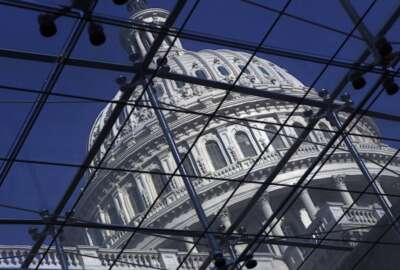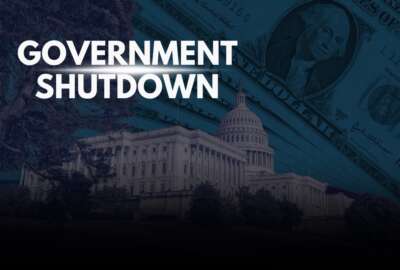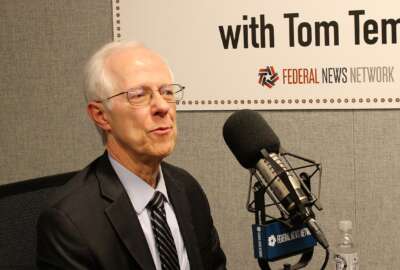IRS delaying 2019 tax filing season ‘could very well happen’ in event of shutdown
While Congress has taken steps Wednesday to introduce another continuing resolution and avoid a partial government shutdown, the IRS is prepared to furlou...
While Congress has taken steps Wednesday to introduce another continuing resolution and avoid a partial government shutdown, the IRS is prepared to furlough the vast majority of its workforce if lawmakers fail to fund agencies past the Friday midnight deadline.
The IRS, having dealt with workforce and budget cuts since 2010, is already stretched thin with implementing the December 2017 tax reform law in time for the upcoming 2019 filing season.
In the event of a shutdown, the IRS will furlough about 88 percent of its total workforce, according to the agency’s updated shutdown guidance. In November, the agency reported a total workforce of just under 80,000 employees.
Of the nearly 10,000 IRS employees exempt from a government shutdown, more than 3,377 come from their IT department, while an additional 2,745 essential employees work in the agency’s criminal investigations division.
The Wage and Investment office would also have 2,241 employees report to work in the event of a shutdown.
Over the past year, the IRS has endeavored to update more than 450 forms and 140 IT systems before the start of the tax filing season in January, in order to comply with the Tax Cuts and Jobs Act.
However, Tony Reardon, president of the National Treasury Employees Union, said Monday that the union was “extremely concerned about how a shutdown will impact the start of the 2019 filing season.”
“Thousands of IRS employees whose job it is to assist taxpayers — on the phone or in person — are in the process of being trained about the massive changes to the tax code,” Reardon said. “That training is likely to be interrupted by a shutdown.”
Due to the amount of IT work that remains to be done, the Treasury Inspector General on Tax Administration (TIGTA) expressed concerns in September that IRS is at risk of having to delay the start of the 2019 filing season.
In December 2013, the IRS delayed the start of the 2014 tax filing season following a 16-day government shutdown in October.
Steven Miller, a former acting IRS commissioner under the Obama administration, said in an interview Tuesday that a rolling start to the 2019 tax filing — where some taxpayers filing a particular tax credit or taking certain deductions would wait about a month after the normal filing date — remains a possibility for the IRS.
“That could very well happen here, and I don’t think that’s the end of the world. As long as things work, that could be a good outcome,” Miller said. “But I would almost expect, in any event, that there might be a staged start to the filing [season] because of the substantial changes to the tax code.”
A shutdown would increase the chances of a delayed or modified filing season. Miller said furloughing IRS employees this late in the game would make the “remarkably difficult” challenge of implementing the tax reform law even more difficult.
“It’s not good for the filing season,” Miller said. “Even if they’re able to keep people on, they’re not going to be able to keep everybody on that’s working on the filing season.”
The taxpayer services staff working at agency call centers for tax assistance centers would see some of the most significant furloughs as a percentage of their total workforce.
“It always depended on what time of year it was, as to who was vital and who was not,” Miller said, noting that IT staff would play a crucial role in last-minute preparations for the filing season.
The IRS has long faced challenges with legacy IT, and has some of the oldest systems still running in government.
“That always was difficult in the best of circumstances, and it’ll be even more difficult this year, with the level of effort that’s going to be necessary to get it done,” Miller said about the IRS’s IT challenges.
Senate Majority Leader Mitch McConnell (R-Ky.) walked back some of the apprehensions about a shutdown Wednesday when he announced the introduction of a continuing resolution that would keep agencies funded until Feb. 8.
Reardon said Wednesday that federal employees would “certainly prefer a continuing resolution to a partial government shutdown,” but expressed concerns that a CR wouldn’t give the IRS additional funding to implement the tax reform law.
Even in the event of a shutdown, Miller said the IRS would resume full operations soon after lawmakers pass a spending bill.
“The service has been through this many times before, and sometimes for longer periods than others,” he said. “My experience has been that the service knows what it’s doing, and when it comes back [from a shutdown], it just starts up. That doesn’t mean that there’s not some residual morale impact.”
The IRS referred questions about the start of the 2019 filing season to the Office of Management and Budget, which did not immediately respond to requests for comment.
Copyright © 2024 Federal News Network. All rights reserved. This website is not intended for users located within the European Economic Area.
Jory Heckman is a reporter at Federal News Network covering U.S. Postal Service, IRS, big data and technology issues.
Follow @jheckmanWFED






